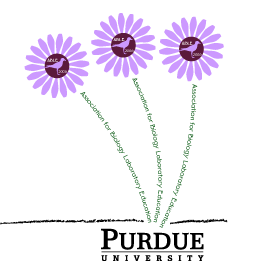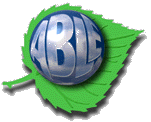Site Links
![]() ABLE 2007: University of Kentucky, Lexington, KY June 5-9. Host: Ruth Beattie
E-mail: rebeat1@uky.edu
ABLE 2007: University of Kentucky, Lexington, KY June 5-9. Host: Ruth Beattie
E-mail: rebeat1@uky.edu


Major Workshops
Wednesday June 7
Janice Bonner, College of Notre Dame of Maryland
A Web-based Investigation of Evolution in Darwin’s Finches
Laboratory exercises that explore evolution are some of the most challenging
for lab instructors to develop. This workshop presents an evolution-based laboratory
exercise in which students use actual field data to develop hypotheses that explain
survival rates of birds under various climatic conditions.
Since 1973, the research team led by Peter and Rosemary Grant has spent 6-9
months a year studying the population of finches on one of the smallest Galápagos
Islands, Daphne Major. During their study they have tagged thousands of finches,
primarily Geospiza fortis and G. scanden, taken measurements
of numerous morphological features of the birds, observed mating and foraging
behaviors, documented offspring, and recorded deaths. Their research has been
reported in numerous journal articles and was described in the Pulitzer Prize
winning book, The Beak of the Finch (Weiner, 1994).It was also the focus
of a segment of The New Explorers, a public television series.
A portion of the Grants’ database is the basis of a website developed
for the Biology Guided Inquiry Learning Environments (BGuILE) project (http://www.letus.org/bguile/finches/GalapagosFinches_software.html).
This website provides an opportunity for students to work with actual field data
to study evolution. Participants in this workshop will learn how to access information
in the database. Then they will study the data from two time periods during which
there were extreme climatic events on the island. During the activity, participants
will analyze and organize extensive data provided in the website, determine which
variables are pertinent, develop a hypothesis and support it with appropriate
data, and write a report of their findings. Additional suggestions for incorporation
of this activity into both laboratory and classroom instruction will be provided.
<<Back